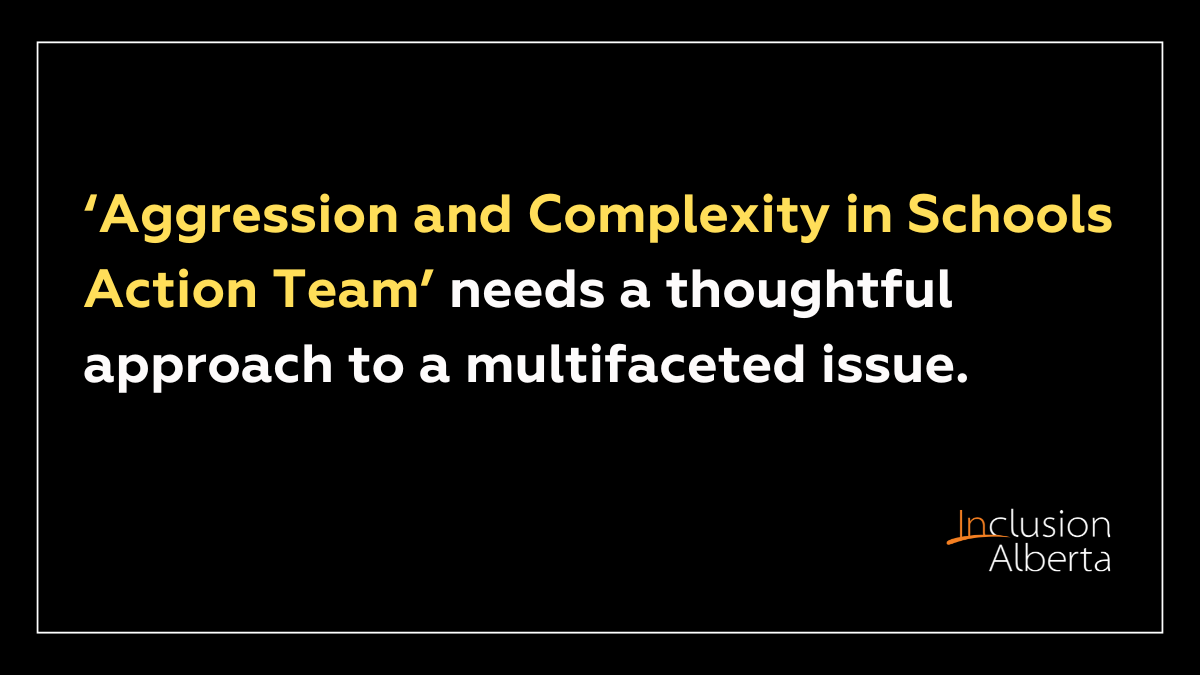
‘Aggression and Complexity in Schools Action Team’ needs a thoughtful approach to a multifaceted issue
Education and Childcare Minister Demetrios Nicolaides announced last week that the Alberta government is creating an ‘aggression and complexity in schools action team’ as an effort to address what the government says is a rising incidence of aggression in classrooms. The team will include superintendents, teachers, school trustees and others. The Minister hopes to implement some of the team’s recommendations by fall.
Learn more about the announcement in this CBC article from June 30, 2025: “Alberta government will appoint ‘action team’ to address classroom aggression”
From the article:
The government will have to go beyond boosting funds to hire more educational assistants, [Inclusion Alberta CEO Trish] Bowman said. Success depends on leaders who get kids access to the right professionals, teachers having training and resources to help students with challenges and having the time to understand and use those resources.
Bowman worries the action team exercise will lead to more segregation of disabled students in specialized classrooms rather than shared classrooms with their more typical peers. She said research does not support this approach.
“It’s a concern for us that without access to the right training and resources, that the default answer becomes removing kids from the classroom and then, potentially, disciplinary practices that can be really harmful, like seclusion and restraint,” she said.
Media has reported on some comments that identify insufficient numbers of education assistants supporting students with disabilities in schools as contributing to safety issues. This thinking mistakenly focuses solely on disability, overlooking the significant roles of mental health and trauma. It will be important that this action team is provided access to comprehensive data about safety incidents and that it engages with expertise regarding approaches such as co-regulation, trauma informed care and positive behavioural supports from outside of the education system. The research about seclusion and restraints in schools shows that phasing out these dangerous practices and replacing them with positive approaches leads to fewer injuries for both staff and students. Inclusion Alberta looks forward to participating in meaningful consultation with the ‘action team’ on the issues.
-Inclusion Alberta
